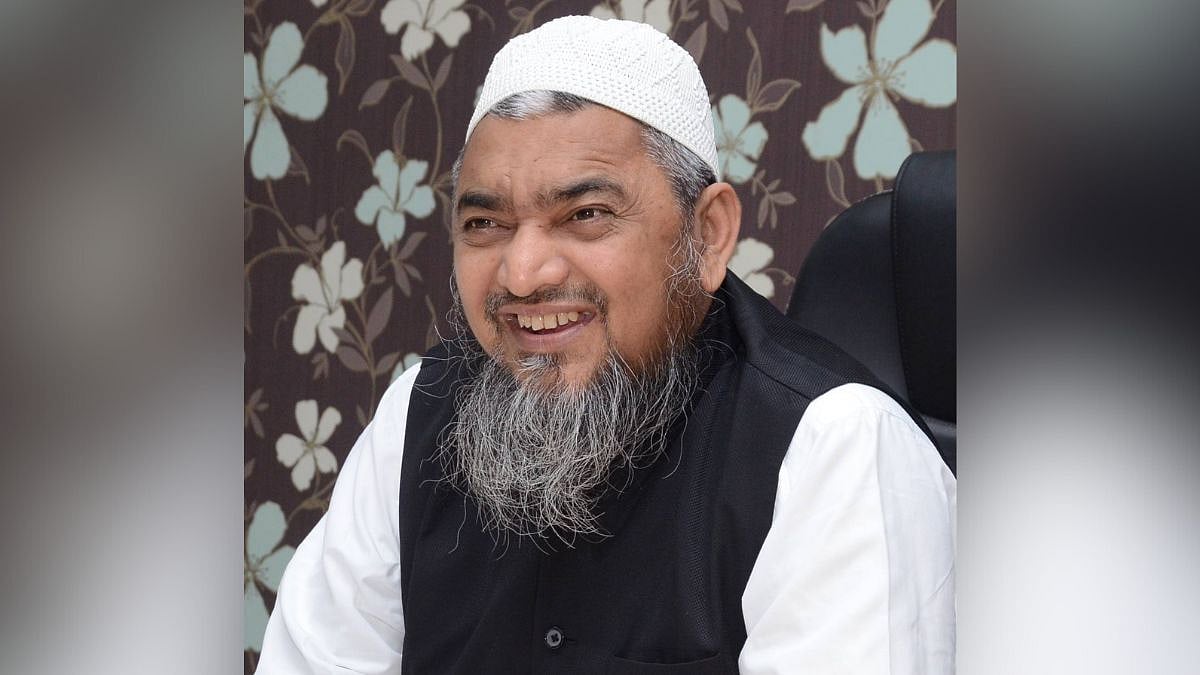Mumbai: Maulana Ghulam Mohammad Vastanvi, who passed away last week, established a vast number of institutions that straddled secular and religious education, earning him esteem as a visionary and a benefactor.
Vastanvi, born on June 1, 1950, in Gujarat, added the name of the village his parents moved into, Vastan, to his own identity. After religious education, he taught at a seminary before setting up a maktab in Akkalkuwa, a small town in North Maharashtra’s backward Nandurbar district. The school grew into a university, Jamia Islamia Ishaatul Uloom. In later years, the campus grew to include a medical, engineering, pharmacy, nursing-colleges, industrial training institutes, and training centres for teachers.

Maulana Ghulam Mohammad Vastanvi | File Photo
Zafar Sareshwala, an educationist and businessman whose family is associated with girls’ schools run by trusts established by Vastanvi, said the educational empire that he built started around 1980 in a hut with six students in Akkalkuwa. Today, the institutions educate tens of thousands of students.
The institutions were spread across the country’s length, from Jammu and Kashmir to Karnataka, said documentary filmmaker Imtiaz Khalil. “He was a visionary in the sense that he believed that modern education should go along with madrassa education.

Zafar Sareshwala (centre) with Maulana Ghulam Mohammad Vastanvi (right) | File Photo
He said, “Madrassa is good, but we should equip our students with modern education,” said Khalil, who also praised Vastanvi’s decision to set up educational institutions in villages and not in metro cities. Vastanvi was also the vice chancellor of Darul Uloom in Deoband, the first man from Gujarat to head the seminary.
Owais Siddiqui from the Students Islamic Organisation said that Vastanvi believed that madrassa students should also have access to modern education. “He was different from other clerics who focused on religious education. He said that universal education should be available to madrassa students who can then contribute to the country,” said Siddiqui.
Vastanvi’s contribution to the public good was not limited to the field of education. Sareshwala said that after the Gujarat riots of 2002, Vastanvi set up the Gujarat Sarvajanik Trust to provide food and homes to displaced Muslim families.
“The trust, together with other organisations, helped the construction of 16,000 homes. When the work of settling the refugees was over, Gujarat Sarvajanik Trust turned to education. Before 2002, Ahmedabad had two Muslim-run schools. Today, there are 79, including 11 run by Vastanvi’s trusts,” Sareshwala said.
The trusts run free hospitals and dialysis centres. “He managed nearly 200 institutions, but I have never seen a more humble man,” added Sareshwala. Advocate Syed Jalaluddin, chairman of the minorities department of the Nationalist Congress Party, said that Vastanvi’s passing is a great loss, particularly to the Muslim community and to Indian society in general.
“He must have established more than 700 mosques and more than 1000 religious education centres. I never got an opportunity to meet him, but have read about his work,” said Jalaluddin.
